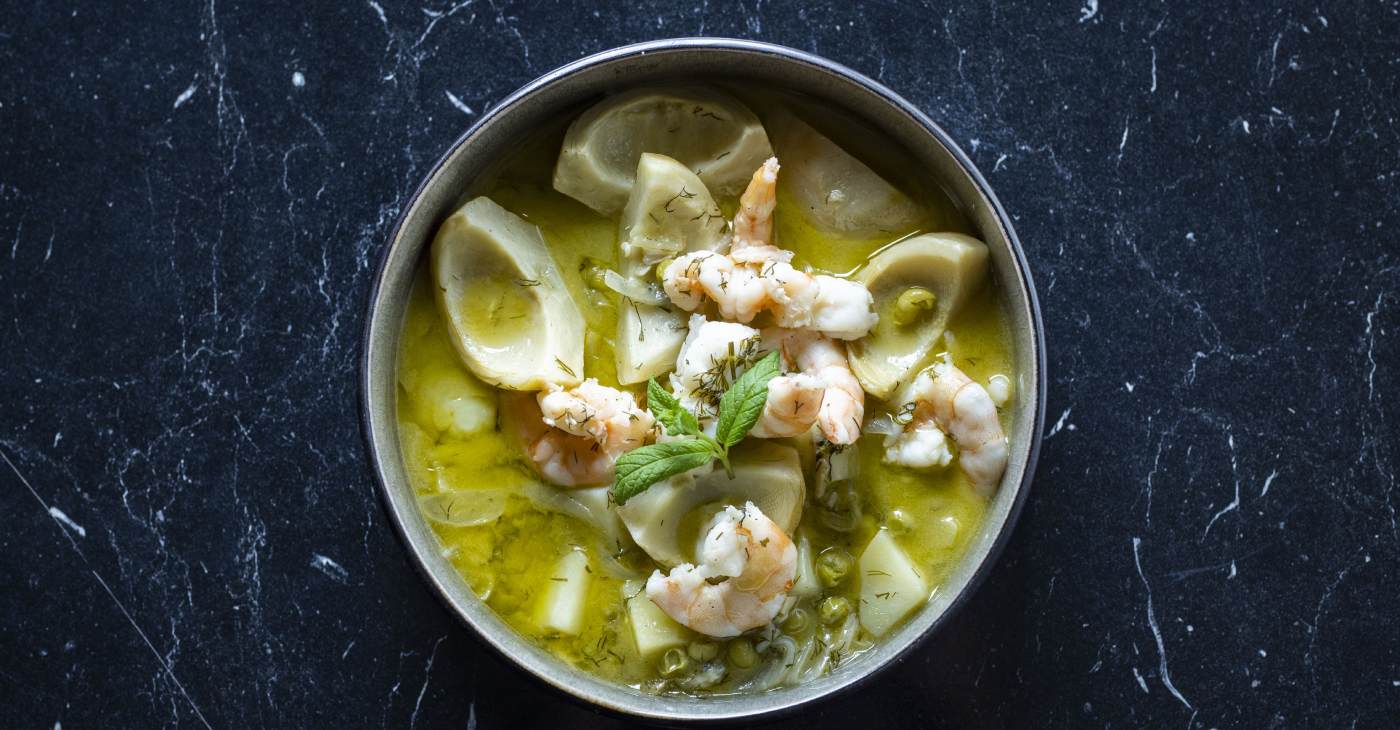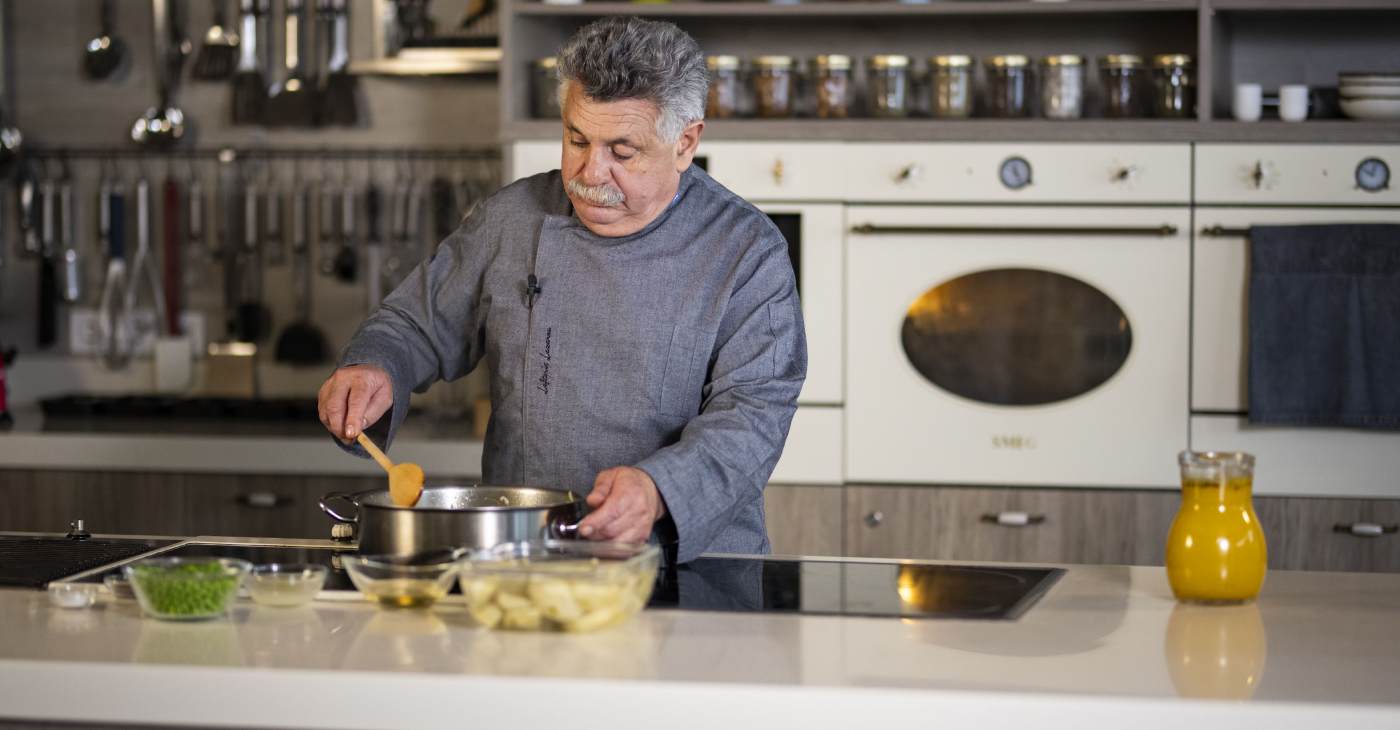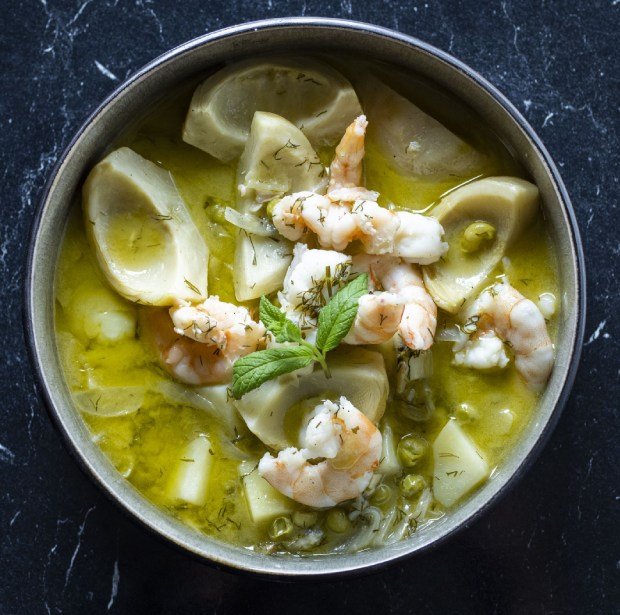
FOR THE SHRIMP
24 good-quality shrimp (4 shrimp per portion)
TO BRING THE DISH TOGETHER
(PER PORTION)
4 cleaned shrimps
6-7 artichokes
vegetable stock
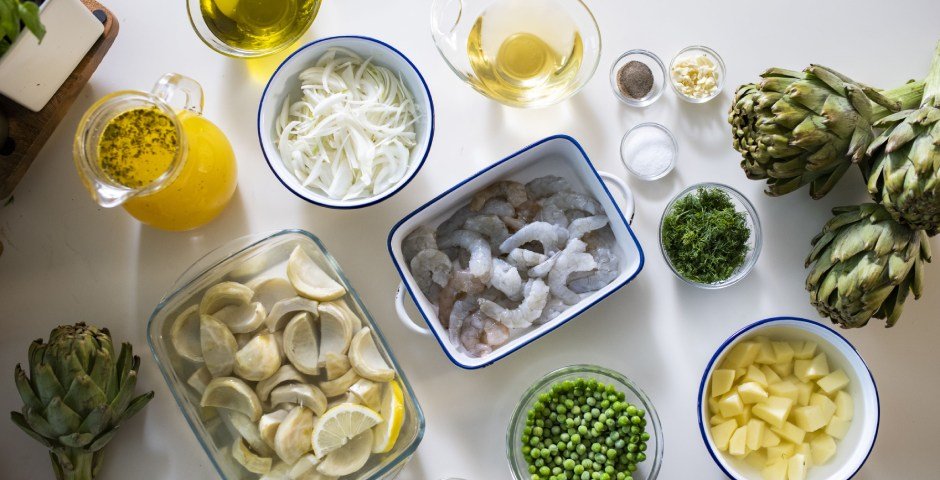
FOR THE ARTICHOKES
100g olive oil
150g onion, sliced into half-moons
2 garlic cloves, finely chopped, sprouts removed
400g potato, cut into medium-sized cubes
18-20 artichokes, cleaned
200g fresh peas
500 g vegetable stock
100 g dry white wine
30 g lemon juice
20 g dill, finely chopped
15 g salt
1 g pepper
TO SERVE
6 spearmint leaves
10 g olive oil
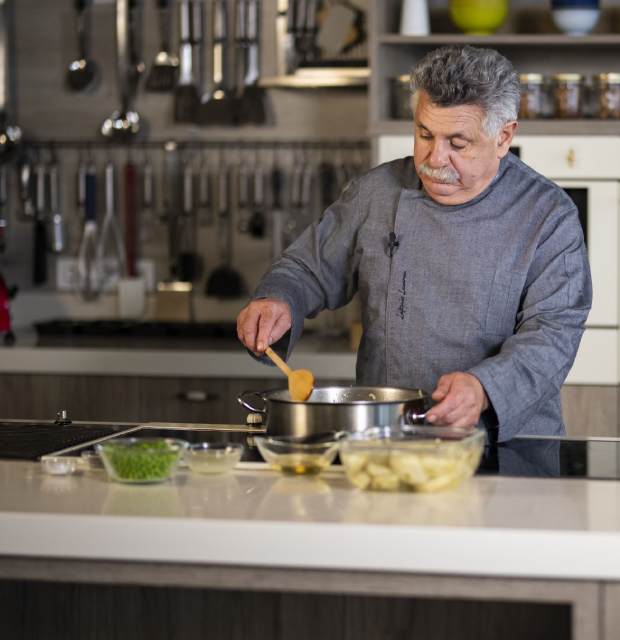
PREPARE THE ARTICHOKES
Clean the artichokes thoroughly, cut in half, and coat with lemon juice. Place them in a bowl of water, where you have dissolved some flour, with a few lemon wedges. This helps prevent the artichokes from going brown.
COOK THE ARTICHOKES
Heat the olive oil in a cooking pan and sauté the onion and garlic until tender. Add the potatoes and cook until tender. Douse with half the wine, allowing the alcohol to evaporate. Reduce to a simmer. Add the peas, dill and lemon juice. Bring to a boil and add the remaining wine, half the salt and the pepper. Lastly, add the artichokes and the remaining salt, and cover partially with vegetable stock. As soon as the food has cooked, remove the pan from the heat.
PREPARE THE SHRIMP
Clean the shrimp, removing shells and sand. Cut in a butterfly shape.
BRING THE DISH TOGETHER
In a skillet, heat some of the liquid from the cooking pan. Add the shrimp and cook for 2-3 minutes together with the artichokes, potatoes and peas.
Serve, garnishing each plate with a spearmint leaf and drizzling with some olive oil.
Wine pairing – Master sommelier Konstantinos Lazarakis
This is an exceptionally balanced dish. The olive oil “intercepts” the bitterness of the artichoke, and the lemon “chases down” the fleshiness of the shrimp as well as any oiliness. However, the dish’s acidity and vibrancy could further be enhanced by its being paired with a white wine of the Lagorthi variety; low in alcohol by Greek standards, this variety produces high-acidity but low-intensity wines.
(Ideally, you should serve the same wine as the one you used in the recipe, or a similar one.)
